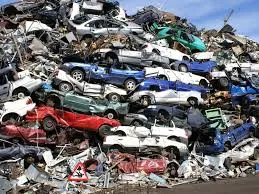

Spa . 17, 2024 15:59 Back to list
The Importance of Aluminium Recycling Plants
In recent years, the emphasis on sustainable development and environmental conservation has led to an increase in the importance of recycling facilities, particularly aluminium recycling plants. Aluminium is one of the most versatile and widely used metals in the world, with applications ranging from aerospace and automotive industries to packaging and construction. Given the significant ecological footprint associated with primary aluminium production, recycling has emerged as a critical component in the effort to reduce waste, conserve resources, and lower carbon emissions.
Understanding Aluminium Recycling
Aluminium recycling involves the process of reprocessing used aluminium products to create new aluminium materials. Unlike many materials, aluminium can be recycled indefinitely without losing its properties, which makes it highly valuable in the recycling industry. The recycling process begins with the collection of scrap aluminium, which is then cleaned and melted down in a furnace. Once melted, the aluminium is cast into new shapes or rolls, ready for manufacturing. This closed-loop system not only conserves energy but also significantly reduces greenhouse gas emissions compared to the extraction of primary aluminium from bauxite ore.
Environmental Benefits
The environmental benefits of aluminium recycling are extensive. It is estimated that recycling aluminium saves up to 95% of the energy required to produce new aluminium from raw materials. This energy conservation translates into a substantial reduction in carbon dioxide emissions, with studies showing that for every kilogram of aluminium recycled, approximately 9 to 12 kilograms of CO2 emissions are avoided. Furthermore, recycling means less landfill waste, which mitigates the environmental hazards posed by discarded products, while also conserving natural resources such as bauxite, water, and energy.
Economic Advantages

In addition to environmental benefits, aluminium recycling plants also offer significant economic advantages. The recycling process creates jobs and stimulates local economies. For instance, a recycling plant can employ a variety of workers, from those involved in the collection and sorting of scrap materials to specialists in the recycling process itself. Moreover, aluminium recycling is often more cost-effective than primary production. With fluctuating global metal prices, recycled aluminium can be a more stable and less expensive alternative for manufacturers.
The Role of Technology
Technological advancements have played a crucial role in enhancing the efficiency and effectiveness of aluminium recycling plants. Innovations such as automated sorting systems and advanced melting technologies contribute to higher recovery rates and better-quality recycled aluminium. Moreover, the integration of smart technologies is paving the way for an even more streamlined process. Internet of Things (IoT) devices can monitor operations in real time, optimizing energy consumption and minimizing waste, leading to an even lower environmental impact.
The Future of Aluminium Recycling
As the global demand for aluminium continues to rise, the importance of recycling will only grow. The shift toward a circular economy — where resources are reused and recycled rather than disposed of — is gaining momentum. Governments and industries are increasingly recognizing the significance of recycling as a means to achieve sustainability goals. Policies promoting the collection and processing of scrap aluminium are being implemented across various regions, further supporting the growth of recycling plants.
Consumer awareness also plays a vital role in the future of aluminium recycling. As people become more conscious of their ecological footprint, they tend to support products made from recycled materials. This consumer demand not only drives the recycling industry but also encourages manufacturers to adopt sustainable practices.
In conclusion, aluminium recycling plants are critical for fostering a sustainable future. They provide environmental benefits by conserving energy and reducing emissions, economic advantages through job creation and cost savings, and technological innovations that enhance efficiency. As we move towards a circular economy, the role of recycling plants will become even more essential, underscoring the need for continued investment and support in the aluminium recycling sector. By prioritizing recycling, we can make significant strides toward protecting our planet for future generations.
Latest news
Troubleshooting Common Eddy Separator Problems
NewsJul.04,2025
The Role of Metal Recycling Plants in Circular Economy
NewsJul.04,2025
The Impact of Recycling Line Pickers on Waste Management Costs
NewsJul.04,2025
Safety Features Every Metal Shredder Should Have
NewsJul.04,2025
How Industrial Shredders Improve Waste Management Systems
NewsJul.04,2025
How Cable Granulators Contribute to Sustainable Recycling
NewsJul.04,2025